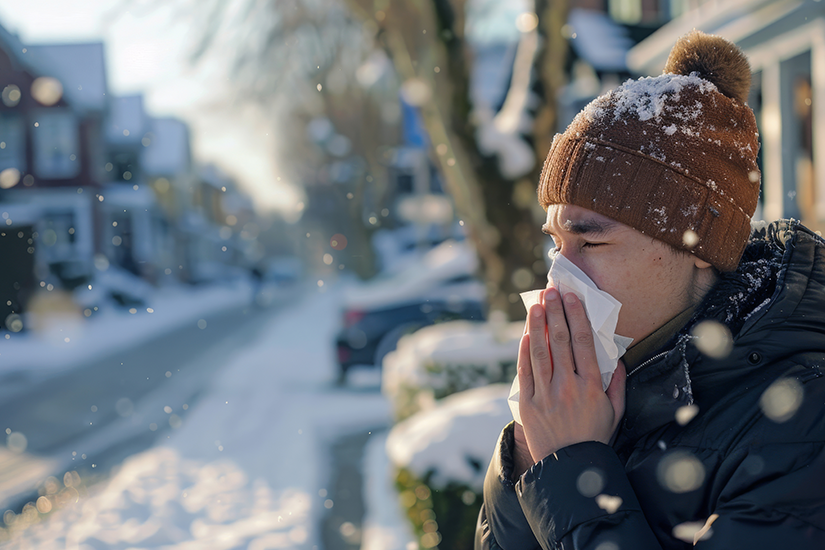- Emergency Ambulance Services
- 8606811111
- 0471-4077777, 0471-7177888
- gro@sutpattom.com
Climate Change, Temperature Extremes, and Respiratory Infections in Winter
Dr. Sofia Salim Malik, Senior Consultant Pulmonologist, Allergy, Immunology & Sleep Consultant, SUT Hospital, Pattom.
The impact of climate change on winter seasons is evident in the sharp contrast between daytime high temperatures and night time low temperatures. These fluctuations, combined with the ongoing effects of global warming, significantly influence respiratory health.
Daytime High Temperatures
Winters are increasingly witnessing unseasonably warm days due to climate change. While daytime warmth may seem comforting, it creates conditions that exacerbate respiratory issues:
Increased Pollution Levels: Higher daytime temperatures facilitate the exposure to these pollutants irritates the lungs and aggravates conditions like asthma and bronchitis.
Prolonged Viral Survival: Warm daytime temperatures allow respiratory viruses, such as influenza, to remain active for longer durations, increasing infection risks.
Immune Stress: Sudden shifts from traditional winter cold to warmer daytime temperatures can weaken the body’s immune response, leaving individuals vulnerable to infections.
Night time Low Temperatures
The stark drop in temperatures at night remains a hallmark of winter but is becoming more extreme due to erratic weather patterns:
Cold-Induced Bronchial Irritation: Cold air at night can trigger airway constriction, worsening symptoms in individuals with asthma or chronic obstructive pulmonary disease (COPD).
Indoor Dampness and Allergens: Cold nights often lead to condensation indoors, creating ideal conditions for mold and dust mites, which exacerbate respiratory allergies.
Increased Viral Activity: Many respiratory viruses, including influenza, thrive in colder conditions, raising infection risks during frigid nights.
Coping with Temperature Extremes
Managing these temperature fluctuations is essential to reduce respiratory health risks:
- Dress in layers to accommodate sudden temperature changes.
- Avoid outdoor exposure during extreme weather and maintain good hand hygiene.
Climate-induced temperature extremes demand both global mitigation efforts and individual health precautions to combat the rising prevalence of respiratory infections during winter.









